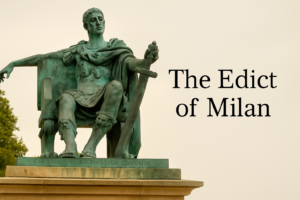Introduction
Pentecostalism is a vibrant and dynamic branch of Christianity that emerged in the early 20th century, emphasizing the active presence and work of the Holy Spirit in the lives of believers. Known for its passionate worship, spiritual gifts, and transformative experiences, Pentecostalism has grown rapidly across the globe, influencing various aspects of Christian practice and worship. This article explores the origins, core beliefs, practices, and cultural impact of Pentecostalism.
Origins and Development
Pentecostalism traces its roots back to the early 20th century, particularly the Azusa Street Revival in Los Angeles (1906-1915), which is often considered the birth of the modern Pentecostal movement. Led by William J. Seymour, the revival was marked by intense experiences of speaking in tongues, divine healing, and prophetic utterances. This revival was instrumental in spreading Pentecostalism across the United States and eventually to other parts of the world.
The movement’s name derives from the biblical event of Pentecost, described in Acts 2, where the Holy Spirit descended upon the apostles, enabling them to speak in various tongues and perform miraculous signs. Pentecostalism emphasizes this event as a model for contemporary Christian experience, advocating for a renewal of spiritual gifts and an active engagement with the Holy Spirit.
Core Beliefs and Theology
Pentecostal theology centers on several key beliefs:
– Baptism in the Holy Spirit: Pentecostals believe in a distinct experience called the “baptism in the Holy Spirit,” which is separate from salvation and leads to a deeper empowerment for Christian living and ministry. This experience is often evidenced by speaking in tongues, prophesying, or other spiritual manifestations.
– Spiritual Gifts: The movement places a strong emphasis on the exercise of spiritual gifts, including speaking in tongues (glossolalia), prophecy, healing, miracles, and discernment. These gifts are seen as evidence of the Holy Spirit’s active presence and power in the life of the believer.
– Experiential Faith: Pentecostalism values personal, direct encounters with God, which can include emotional and physical manifestations during worship. The movement encourages believers to seek and experience the transformative power of the Holy Spirit in their daily lives.
– Divine Healing: Healing is a significant aspect of Pentecostal belief, with many adherents holding that God continues to heal the sick and perform miracles today. Healing services and prayer for physical and emotional restoration are common practices within Pentecostal churches.
– Eschatology: Pentecostals often have a premillennial eschatology, believing in the imminent return of Christ and the establishment of His millennial kingdom. This belief motivates evangelistic efforts and a sense of urgency in spreading the gospel.
Worship and Practice
Pentecostal worship is characterized by its energetic and expressive nature. Services often include:
– Lively Praise and Worship: Pentecostal services are known for their enthusiastic and spontaneous worship, which may include singing, dancing, clapping, and raising hands. This expressive form of worship is seen as a way to connect deeply with God and invite His presence.
– Speaking in Tongues: The practice of speaking in tongues is a hallmark of Pentecostal worship. Believers may engage in glossolalia during personal prayer or public worship, viewing it as a sign of the Holy Spirit’s presence and a means of personal edification.
– Prophecy and Healing: During services, members may engage in prophetic ministry, sharing messages believed to be inspired by the Holy Spirit. Healing services, where prayer and laying on of hands are employed, are also a common feature, reflecting the movement’s belief in the continuing power of divine healing.
– Altars and Prayer Meetings: Altars are often used in Pentecostal churches for personal prayer and intercession. Special prayer meetings and revival services are frequently held to seek spiritual renewal and experience the Holy Spirit’s work in a communal setting.
Cultural Impact
Pentecostalism has had a profound impact on Christian practice and culture globally. Its emphasis on charismatic expressions and spiritual experiences has influenced various Christian denominations and movements. Pentecostal churches often engage actively in social issues, including poverty alleviation, education, and community development.
In many regions, Pentecostalism has contributed to the growth of vibrant church communities and grassroots movements, often reaching underserved populations and providing a sense of empowerment and hope. The movement’s music, including contemporary praise and worship songs, has also become widely popular, shaping modern Christian worship.
Criticism and Controversy
Pentecostalism has faced criticism from various quarters, including both within Christianity and from secular perspectives. Critics often point to concerns about the movement’s emphasis on emotionalism and subjective experiences, questioning the theological grounding and potential for manipulation in certain practices.
Some traditional Christian groups have criticized the movement’s emphasis on spiritual gifts and manifestations, viewing them as deviations from orthodox doctrine. Additionally, the prosperity gospel, a teaching associated with some Pentecostal circles, has been a subject of controversy, with critics arguing that it promotes a materialistic view of faith and divine favor.
Global Reach and Future Directions
Pentecostalism has expanded significantly worldwide, with substantial growth in regions such as Latin America, Africa, and Asia. The movement’s adaptability and focus on personal experience resonate with diverse cultural contexts, contributing to its global spread.
Looking ahead, Pentecostalism will likely continue to evolve, addressing contemporary issues and engaging with global challenges while maintaining its core emphasis on the Holy Spirit and spiritual gifts. The movement’s vibrant and experiential nature will continue to attract those seeking a dynamic and transformative faith experience.
Conclusion
Pentecostalism represents a distinctive and influential branch of Christianity, characterized by its emphasis on the Holy Spirit, spiritual gifts, and vibrant worship. Its origins in the early 20th century have led to a global movement that shapes Christian practice and culture in significant ways. While it faces challenges and criticisms, Pentecostalism remains a dynamic and transformative force within the Christian tradition, offering a deeply personal and experiential approach to faith.













